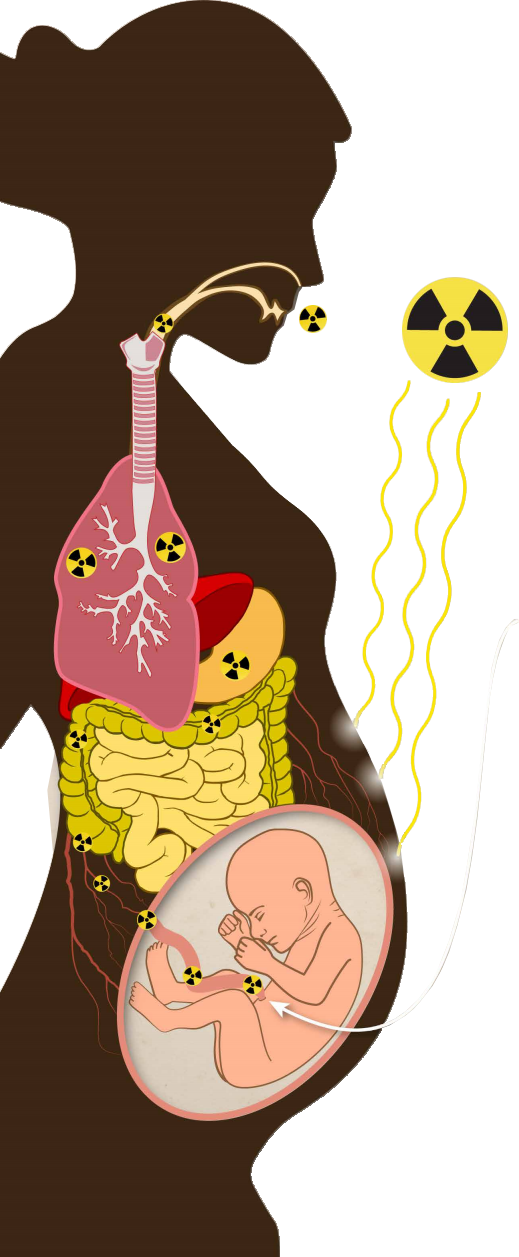What to know
- If you are pregnant and have been exposed to radiation in an emergency, get medical help as soon as officials say it is safe.
- Fetuses are protected by the stomach, so they are exposed to less radiation outside of the body.
- Your risk of cancer is low if you are only exposed to a small dose of radiation.

Cancer
People who receive high doses of radiation could have a greater risk of developing cancer later in life. This depends on the radiation exposure.
Health officials will monitor people affected by radiation emergencies for long-term health effects. This includes cancer. Follow instructions from emergency officials to limit your radiation exposure.
The risk of cancer is small if you are exposed to low doses of radiation. Cancer caused by radiation is not distinguishable from cancer caused by smoking or any other risk factor.
Prenatal radiation exposure
It is important that pregnant people follow instructions from emergency officials. They should seek medical attention as soon as emergency officials say it is safe to after a radiation emergency.
Prenatal radiation exposure occurs when the pregnant person's abdomen is exposed to radiation from outside their body. A developing fetus is highly susceptible to health effects from radiation exposure because of the rapid rate of cell division.
Pregnant people who are exposed to radiation also have an increased risk of fetal miscarriage. Fetuses are less sensitive to radiation during later stages of pregnancy (after 18 weeks).
However, because the fetus is shielded by the pregnant person's abdomen, it is partially protected in the womb from radioactive sources. This means that the radiation dose to the fetus is lower than the dose to the pregnant person for most radiation exposure events.
Pregnant parent to fetus
A pregnant person who accidentally swallows or breathes in radioactive materials may absorb them into their bloodstream. Radioactive materials may pass through the umbilical cord to the fetus. These materials can also stay in areas of the pregnant person's body near the womb, exposing the fetus to radiation.
The chance of major health effects depends on:
- The age of the fetus when exposed
- The amount of radiation
Fetuses are particularly sensitive to radiation during their early development, between weeks 2 and 18 of pregnancy. The health effects to the fetus can be severe, even at radiation doses too low to make the pregnant person sick. These can include:
- Stunted growth
- Deformities
- Abnormal brain function
- Cancer that may develop sometime later in life
